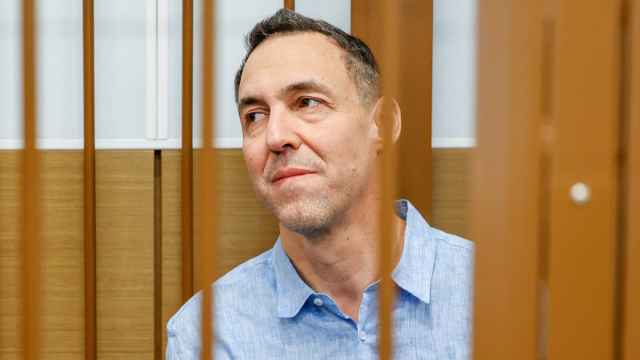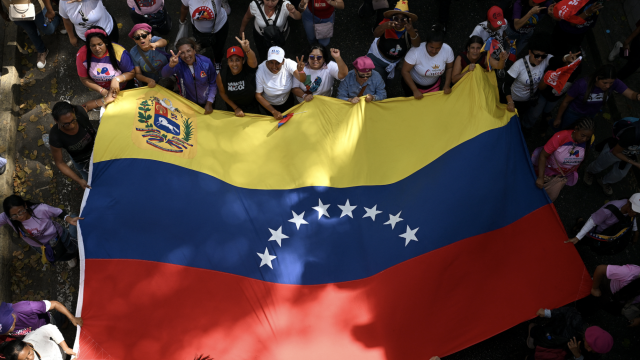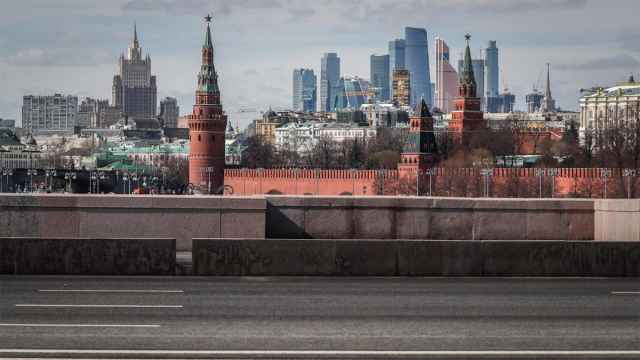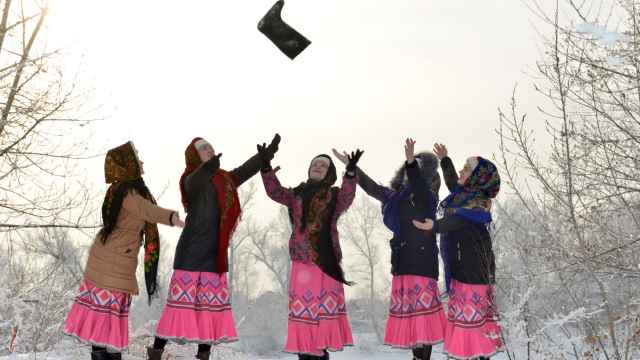If Prime Minister Vladimir Putin begins a six-year term as president in 2012 he will join 12 million pensioners who continue to work beyond the official retirement age.
Putin's decision has prompted comparisons to the long rule of Soviet leader Leonid Brezhnev, who died in office at age 75, but his unwillingness to end his professional life is far from unique.
More than one-third of the country's 33 million pensioners remain employed. Russian males can draw a pension at 60 years old, females at 55.
The constitution permits Putin, 59, to serve two consecutive terms as president, which means he could serve in the post until 2024, when he will be 71.
According to Moscow's department of political economy and development, 18 percent of the Russian work force is made up of pensioners. That figure rises to 21 percent in education and 22 percent in health care. About 97 percent of teachers continue working after they could retire.
Of 2.5 million pensioners in Moscow, 700,000 remain in employment, said Deputy Mayor Lyudmila Shvetsova.
Throughout Russia, the number of pensioners has grown 9 percent over the last 20 years, Health and Social Development Minister Tatyana Golikova said Tuesday.
Participating in the three-day 50-Plus conference and exhibition, Golikova, 45, added that the most important of the state's responsibilities in the lives of pensioners included, "the development of the pension system, the improvement of medical services and the creation of appropriate conditions to realize the employment potential of our citizens."
Sixty-seven percent of Russians have to help out an elderly person, said Mathias Knigge, a German consultant specializing in the elderly market.
Putin expressed his personal support for the 50-Plus initiative, which is financed by the government of Moscow and the Russian Chamber of Commerce, at a meeting of the Agency of Strategic Initiatives last week.
Vladimir Yablonsky, director of social projects for the Agency of Strategic Initiatives, was present at the event opening Tuesday.
Russia's pension system deficit will double in 2012 to 1.75 trillion rubles ($58 billion), Health and Social Development Deputy Minister Yury Voronin said last week, Bloomberg reported.
But raising the retirement age as a part of pension reform would be strongly resisted, particularly in the face of Russia's low life expectancy. According to United Nations figures, men in Russia live on average to an age of 63, women to 75.
Voronin added that instead of raising the pension age, Russia could change to a system where pension payments are linked to time worked and level of pay. Next year, a strategy for the development of the pension system through 2050 will be prepared, he said.
But it is not just the ending of Russia's electoral cycle that will give government some impetus to reform the pension system.
"In a year when we celebrate the 60th birthday of Putin, everything will be as it should be," social activist and writer Anatoly Salutsky said.
A Message from The Moscow Times:
Dear readers,
We are facing unprecedented challenges. Russia's Prosecutor General's Office has designated The Moscow Times as an "undesirable" organization, criminalizing our work and putting our staff at risk of prosecution. This follows our earlier unjust labeling as a "foreign agent."
These actions are direct attempts to silence independent journalism in Russia. The authorities claim our work "discredits the decisions of the Russian leadership." We see things differently: we strive to provide accurate, unbiased reporting on Russia.
We, the journalists of The Moscow Times, refuse to be silenced. But to continue our work, we need your help.
Your support, no matter how small, makes a world of difference. If you can, please support us monthly starting from just $2. It's quick to set up, and every contribution makes a significant impact.
By supporting The Moscow Times, you're defending open, independent journalism in the face of repression. Thank you for standing with us.
Remind me later.







